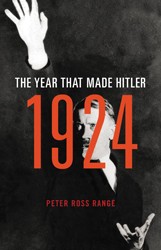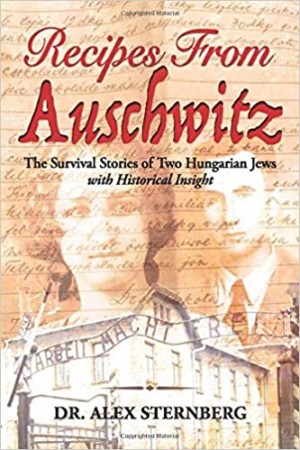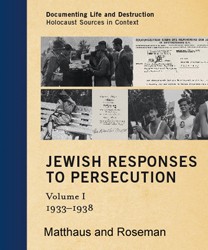Gӧtz Aly, a well-respected and well published historian of the Third Reich, tries his hand at one of the most perplexing and elusive issues of the Holocaust: why the Germans and why the Jews? Separating himself from most of the scholarship on this question, he argues that it is not racial ideology or religious animosity that motivated Germany’s particular brand of “eliminationist” anti-Semitism. Rather he sees its origins in material concerns rooted in envy, fear of failure, insecurity, resentment, and a drive for social equality. Aly traces the relationship of Germans and Jews from Jewish emancipation in 1805 when the Jews began to leave the ghetto and enter into German society, to 1933 when Hitler achieved power. Through economic and educational statistics, political, journalistic, and cultural reflections on German society, and family documents and letters, he contrasts the rapid rise and accomplishments of the educated Jewish population after emancipation, to the relative stagnation of the rural and uneducated German population. This created fertile ground for resentment and envy and Aly explains how anti-Semitism could gain such a foothold in German society, leading ultimately to genocidal policies. Germans were not “destined” to follow this path. The road to Auschwitz remained “twisted.” However, this ultimately was the path they went down.
In the process, Germany had to overturn traditional values as it converted mass murder into a civic virtue. This was made possible by the force of national myths and habits of thought and by the impact of these diverging economic and education tendencies. There was a deep-seated sense of inferiority that gnawed at the German spirit. Despite the impressive industrialization and military, Germans felt insecure, not part of a welded nation. Hatred of another is often the other side of self-contempt. If, indeed, Germans lacked what they so ardently envied in others, the image of the Jewish people as a people united by a national religion and culture might assume exaggerated importance.
This is certainly not a novel theory. Jean- Paul Sartre in his 1946 book, Anti-Semite and Jew, already pointed out the connections between anti-Semitism and insecurity and that the anti-Semite flees responsibility and choses hatred out of the fear of being free, mediocrity out of fear of being alone, and out of this false pride he makes a “rigid aristocracy.” What is new here is the extensive documentation Aly provides that suggests why Germany was more susceptible than other European countries to these tendencies. Racial theory disguised hatred as analysis and made German shortcomings seem like virtues. It also provided justification for legal discrimination against Jews, allowing Germans to sublimate their aggression, born of envy and feelings of inferiority, to the state and to see the state as the mechanism of redress for the perceived injustices of Jews having more than their fair share.
As an explanation for German anti- Semitism, Aly’s provocative book is certainly suggestive. However, how individual hatred was transformed into a collective, passionate need to find a “Final Solution” to the Jewish question, remains unanswered and possibly unanswerable.
Related content:
- Holocaust: Hitler and the Third Reich reading list
- Studying the Jew: Scholarly Antisemitism in Nazi Germany by Alan E. Steinweis
- A Convenient Hatred: The History of Antisemitism by hyllis Goldstein




